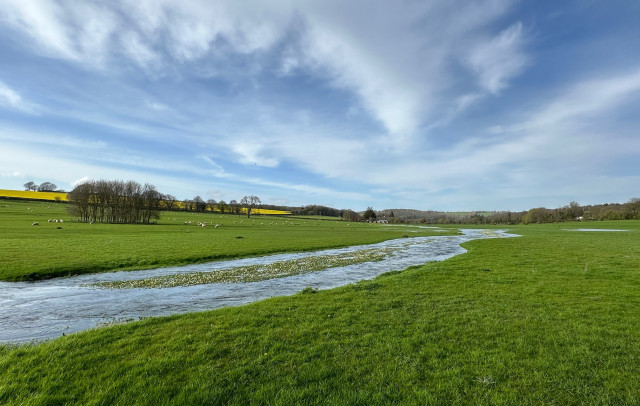The chalk-filtered waters of the River Lavant serenely carve a route from the peaceful village of East Dean, through Singleton, West Dean and Lavant, before winding their way around the city walls of historic Chichester and out to sea.
Providing a vital source of freshwater, the Lavant has played an important part in building the settlements around this rolling downland valley. Evidence suggests that humans have lived along the banks of the river for around 5000 years, using the water for daily life and farming.
Throughout the years the river has also been used as a way of transporting goods, mainly wool and grain, to different villages and of course to market in Chichester. Nowadays many people take solace on its banks through the many footpaths and bridleways, including part of the South Downs Way National Trail.
As one of only 200 chalk streams left in the UK, this precious river should offer a haven for an abundance of wildlife.

However in recent years the quality of this habitat has been destroyed due to sewage being pumped into the river and pollution washing into the water from the adjacent farmland and roads. We need to act now to help prevent this precious wildlife haven from being lost completely.
On a lighter note, the Lavant has inspired folklore through the years, with one story involving a mischievous water nymph named Lydian, who lived on the river playing tricks on local villagers. Rumor had it that she could be appeased by flowers or other little gifts laid at her favourite spot on the riverbank - we wonder where that might have been, and where yours might be?…
